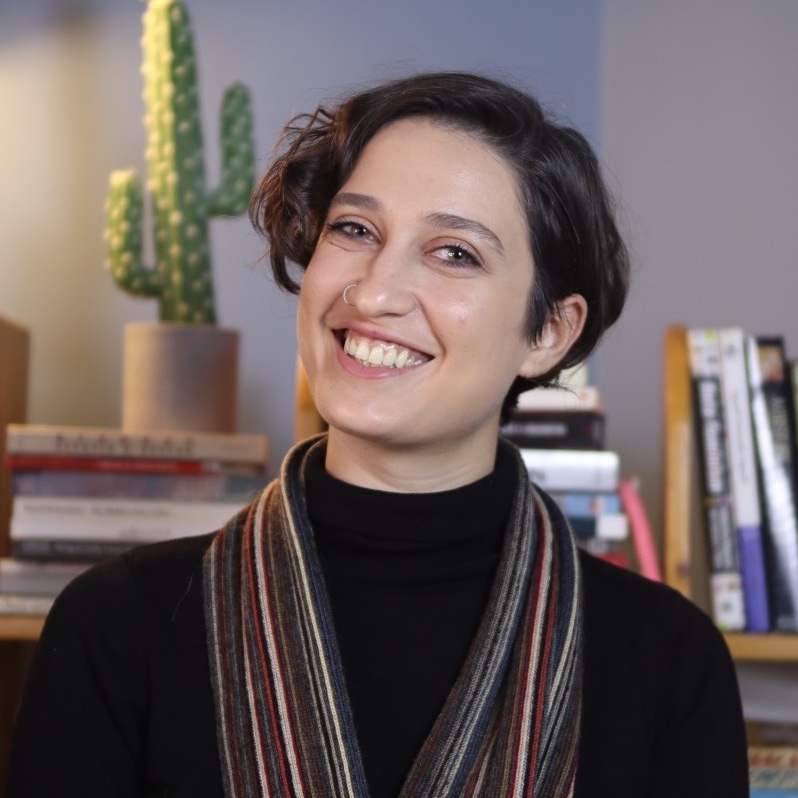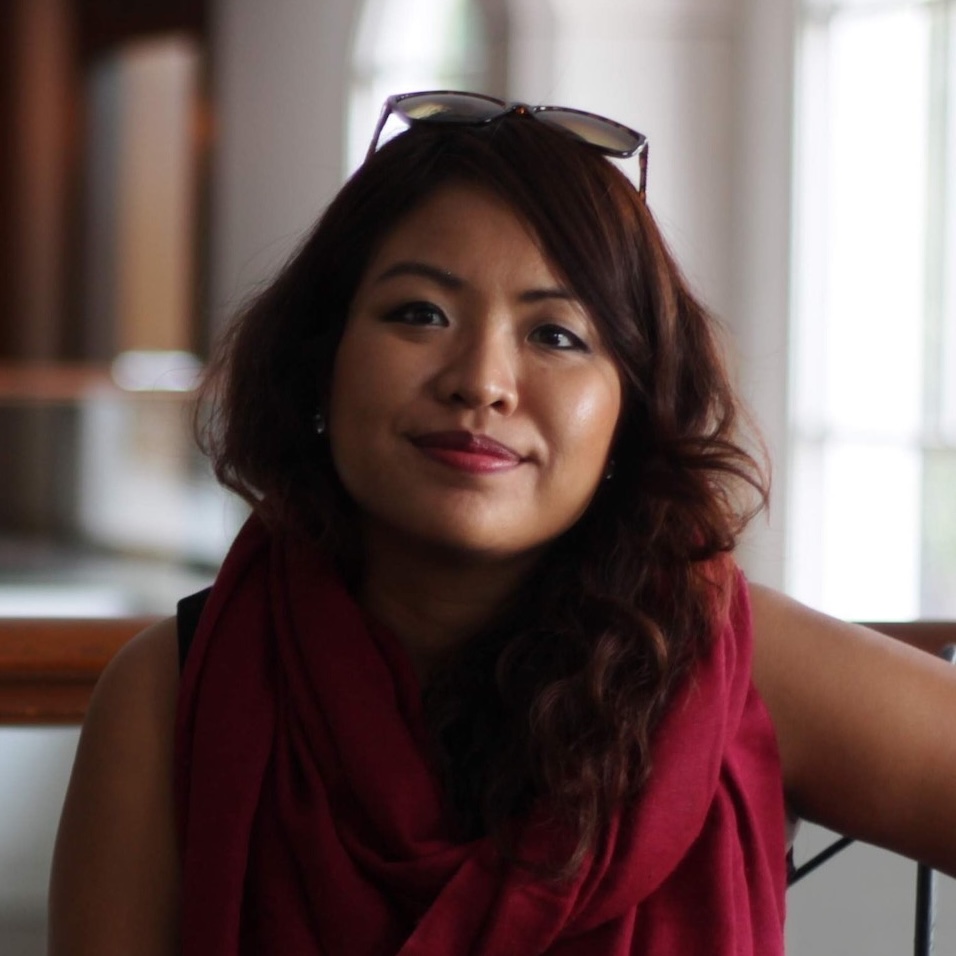Palestinian Perspectives on Genocide, Feminist Solidarity, and the Struggle for Autonomy
In the face of ongoing global crises, particularly the devastating situation in Palestine, the Global South Feminist Manifesto Project has become more crucial than ever. As part of our Manifesto Week, we engaged in a powerful dialogue about fostering meaningful, actionable solidarity. This conversation features insights from Trimita Chakma, the South Feminist Manifesto Project Lead, and Sarah Kaddoura, a Palestinian feminist activist based in Lebanon and SFF’s new Lead for the Political Education Programme.
Trimita: As we’ve discussed, this Manifesto aims to be a powerful tool for addressing global crises and building solidarity across the Global South. Now, we turn to a critical example of why this work is so urgent and necessary. As we open our Manifesto Week, I can’t help but feel the weight of our responsibility. The words we are writing on the Manifesto aren’t just ideas on paper – they’re meant to be a call to action. And nowhere is this more urgent than in Palestine at this point in time, where a relentless genocide continues to unfold before our eyes.
It’s been over 9 months since we first gathered as SFF in solidarity with Palestine. Back then, we were filled with heartbreak, rage, and disbelief. Now, we find ourselves in a place where our hearts have been numbed by the relentless onslaught. For the last 10 months, we’ve witnessed homes crumble, lives erased, and the very essence of humanity challenged day after day – like a grotesque reality TV show that we’re too weak and powerless to turn off.
Yet, even in this darkness, we have seen acts of solidarity from the Global South. South Africa’s leadership in bringing Israel to the International Court of Justice on charges of genocide marks a historic moment. The ICC has opened an investigation, and at the UN, a majority of countries, many from the Global South, called for a humanitarian truce. Worldwide, people are protesting, their voices amplified by Global South and diaspora activists.
But these are just first steps on a long, difficult road ahead. This is why our manifesto is crucial – it’s our roadmap for sustained resistance and solidarity for our futures. It’s Palestine today but it could be any of our homes tomorrow. In moments like these, I’m reminded why we must continue to organise deeply. We must prepare for what’s coming.
And so, I turn to our newest colleague, Sarah Kaddoura, a Palestinian feminist activist currently based in Lebanon. Despite living through this nightmare, Sarah has offered to share with us her critical reflections and I’m honoured to welcome her. Sarah, over the past 10 months, how has your perspective on solidarity shifted in the face of a genocide? And how do you see the role of initiatives like our Manifesto in fostering meaningful, actionable solidarity?
Sarah: As a third-generation Palestinian refugee, I grew up facing a long list of political, economic and civic exclusions in Lebanon where I reside and have lived all my life. Like many of you here today, I found myself gravitating towards anticolonial, anticapitalist feminism as I began navigating feminist spaces and politics. I also found myself doing my best to distance myself from the deeply alienating mainstream and neoliberal definition of feminism, which I was ashamed of associating with. I wanted to prove to myself that these are not my politics, but mostly, to prove to the communities that I come from that feminism is a movement for collective liberation. It’s uncomfortable, but it is not.. evil.
The last ten months have been tremendously and exceptionally hard. This is the fourth or fifth war on Gaza that I have witnessed as an adult, all from behind the screen. The first one was in 2014. I watched as young Gazans documented their death on their phones. Through student clubs, we were protesting, calling for boycotts and divestments, and trying to amplify the voices and images of horror that our friends were living in bombardment under the siege. If bearing witness to atrocities was enough solidarity, Gazans wouldn’t have had to live many more wars since.
The last ten months challenged how I relate to feminist movements at the core. On a personal level, I could not understand how feminist organisations expected me and others to carry on work business-as-usual, and to submit deliverables on women empowerment, mental health, climate change, and other issues that were seen to somehow exist out of the sphere of the ongoing genocide. I found myself replying to emails that referred to this as an Israel-Hamas war, correcting them, asking for the minimum decency of acknowledging the genocide, whose main victims continue to be nonmilitant Palestinian women, children, and men, and elderly people evacuating again, finding refuge in half-destroyed houses, tents on the beach in the scorching heat, overcrowded UNRWA schools, and unable to anticipate the next hit.
In the first week of the war, Palestinian and Arab feminists were expected to denounce rape allegations of October 7th, when hundreds of Palestinians were already killed, and tens of buildings devastated. A global North feminist expectation that ringed quite familiar, reminding many of us of the impossible position we are forced into: we must constantly prove that we are real feminists, by constantly denouncing the angry Arab or brown man/rapist, before we can even consider the human losses we are experiencing. We are expected to immediately believe those accusations, because of how openly we speak about misogyny in our societies, as if our feminism is ideologically and materially separate from our class and anticolonial struggle. We are expected to dehumanise all our men, for us to be seen as human, as worthy of solidarity, of spotlight, of a grieving post. Otherwise, we are fake feminists, fake queers..etc And overall, we are expected to forget how often this narrative is painted to justify the racist, imperialist murder machine, in Palestine, Afghanistan, Iraq, Algeria, India, and many more places.
Sara Salem wrote about similar frustrations faced by Global South feminists in international women’s rights spaces during the early and mid-20th century, at a time in which discussions around Balfour’s promise to give historical Palestine to the Zionist movement were being had. It seemed that Global North feminists were reluctant to speak about this, or even see the issue in it. Many of them today, just like then, refuse to acknowledge the role both colonialism and imperialism played, and continue to play, in cementing our oppression. Just as in the past, solidarity from the Global North today seems conditional, whereas our transnational Global South solidarity comes almost like second nature.
We see it from our comrades in Sudan, South Africa, Congo, Western Sahara, Bangladesh, and other places that have experienced, and continue to live through some of the most violent wars, political unrest, and the remnants of colonial ambitions. We see it through student action primarily led by Global South students in the North, pushing educational institutions to divest. We see it through the relentless direct action of young activists blocking arms trade to Israel. This is the material solidarity that truly challenges colonial ambitions in our region. Otherwise, mainstream feminist discourses that separate women’s issues from their material reality will continue to depoliticise the movement and alienate those most directly impacted by the killing machine
Trimita: Thank you, Sarah, for those powerful insights. You’ve touched on some critical issues about the nature of solidarity and the challenges we face in the feminist movement. Could you share some reflections on the importance of autonomy, particularly financial autonomy, in our work?
Sarah: The question of funding has always loomed over us within our movements. We know very well that revolutions will not be NGO-ised, even as people who work within organisations following this structure. We are critical of the tools we use, and the methods we employ out of necessity. It’s not surprising then that one of the first urgent discussions many feminist organisations in the SWANA region have had since last October is about funding, specifically feminist funding.
We always think of alternative ways of sustaining our groups, collectives, organisations and movements. Funding does not necessarily have to be outright conditional for us to be anxious. Many of us already feel like we get exploited and tokenised, with funders using our faces, words and labour to whitewash their complicity in maintaining capitalist relations. On a personal level, I start worrying that I will eventually lose my edge as long as I keep getting financial support from funders who I know, deep down, do not have an interest in challenging the status quo. It makes you doubt yourself and your intentions, especially when you hear of the people who were fired, forced to quit, or who had to quit silently because their stance on Palestine clashes with that of the organisation or funder. People lost program funding, fellowships, jobs, and other means of support because they acknowledge the genocide, speak about Gaza, or blame Israel. I had friends and comrades apologise to me for the statements released by the international institutions they work in.
Also, conditionality of funding stands in the way of staying true to one’s politics and principles, especially when we don’t want to address our oppression through single-issue analysis. Covid challenged our ideas around work and access. We tried to adapt, as much as we could, in hopes that we do not make the same assumptions and mistakes again. Seeing how many of the funding structures we once believed to be solid have crumbled since the start of the assault on Gaza, perhaps this is also the moment to prepare for the future. To rip the band-aid and take control within these funder/funded relationships and think of ways of strengthening our networks and movements without being completely reliant on the fragility of funding. Should we organise boycotts against funders and organisations complicit in silencing their workers? Should we create unions that push against funders dictating our politics? I would love to hear about the ways and lessons some of you have learned in your organisations and movements regarding funding autonomy.
Trimita: Thank you, Sarah, for sharing these powerful reflections and crucial questions. Your insights on solidarity and the complexities of funding in our movements are vital as we craft our manifesto.
This dialogue between Trimita and Sarah highlights the urgent need for a unified, powerful response from Global South feminists in the face of ongoing crises. It underscores the importance of the Global South Feminist Manifesto as a tool for addressing global injustices and building meaningful solidarity.
The conversation raises critical questions about the nature of feminist solidarity, the challenges of working within existing funding structures, and the need for autonomy in our movements. As we move forward with the Manifesto project, these insights will be invaluable in shaping our approach to fostering actionable solidarity and creating sustainable, independent feminist movements across the Global South.
We invite all Global South feminists to engage with these ideas, share their own experiences, and contribute to the ongoing development of our collective manifesto. Together, we can build a powerful framework for resistance, solidarity, and transformative change.
#GlobalSouth #SouthFeministManifesto #SouthSouthSolidarity #Palestine



